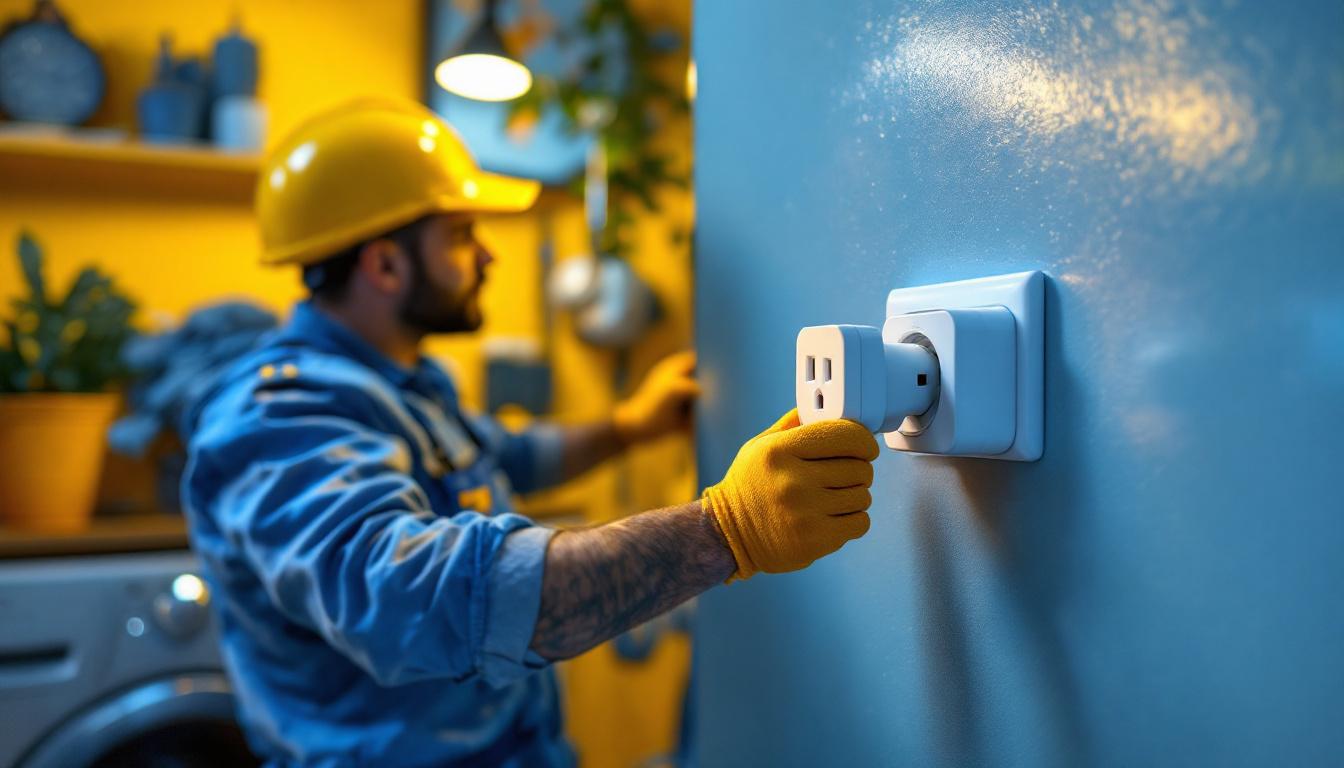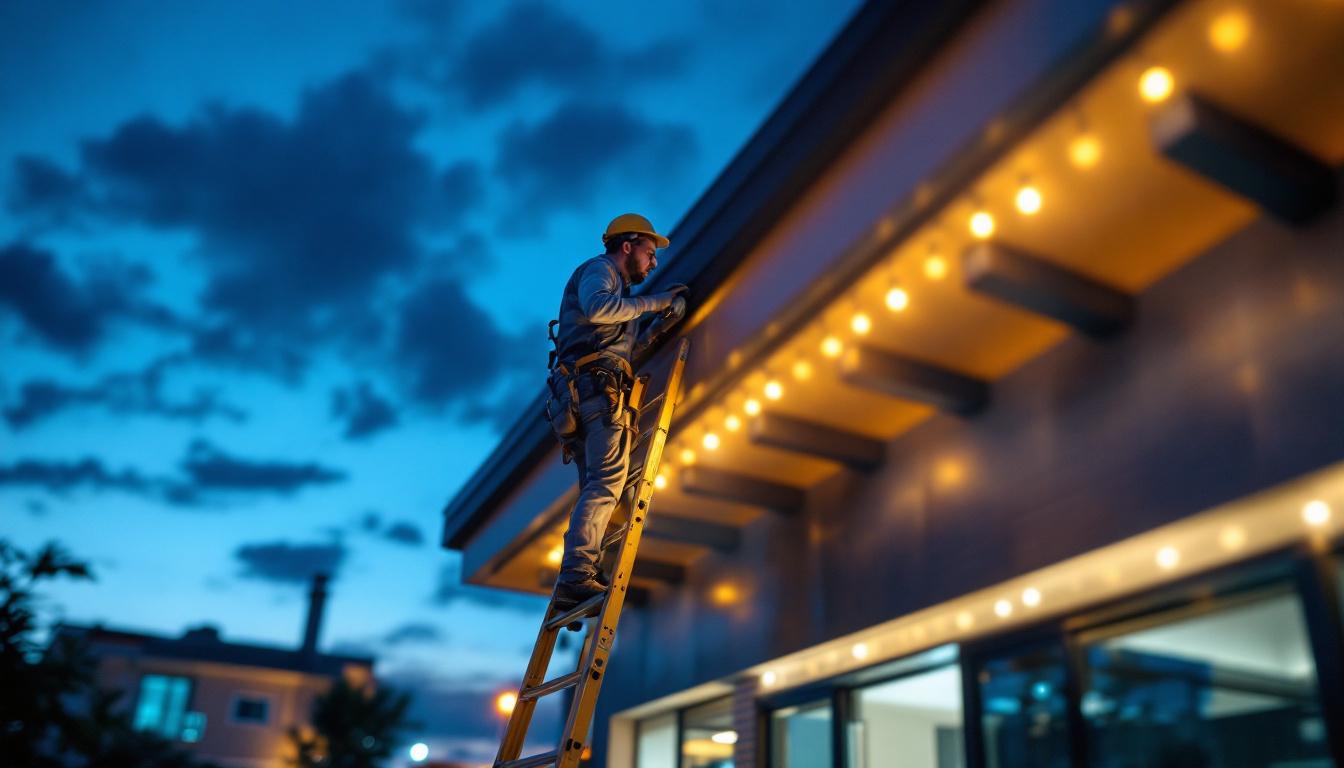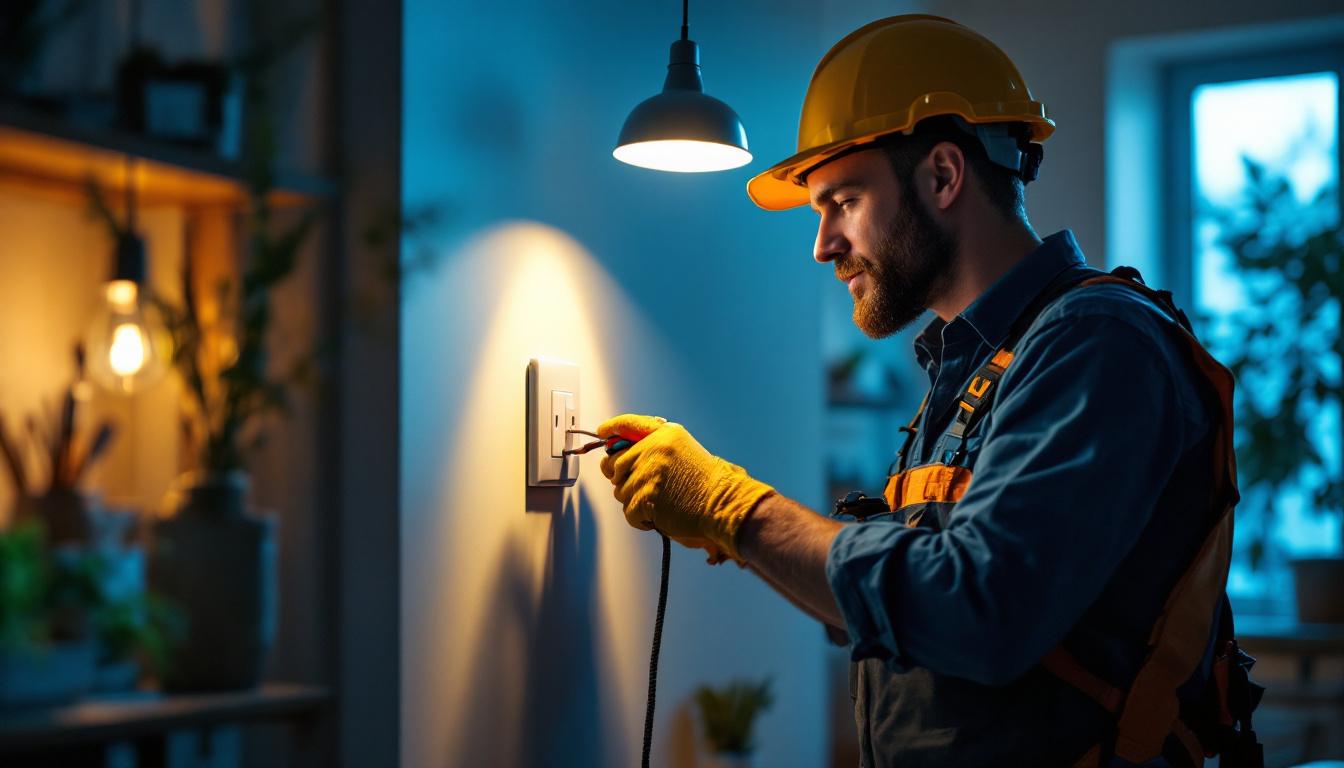
In the realm of electrical installations, the washing machine power outlet represents a critical component that lighting contractors should not overlook. While the primary focus may often be on lighting fixtures and controls, understanding the nuances of power outlets is equally essential. This article delves into the specifics of washing machine power outlets, offering insights tailored for lighting contractors.
Washing machines require a dedicated power outlet to function efficiently and safely. This outlet is typically rated for 20 amps and is designed to handle the high current draw of modern washing machines. Lighting contractors must be aware of the electrical specifications and safety standards that govern these installations.
The National Electrical Code (NEC) outlines specific requirements for washing machine outlets. A typical washing machine outlet is a 120-volt, 20-amp receptacle, often featuring a NEMA 5-20R configuration. This means that the outlet is designed to accept a plug with a specific shape, ensuring that only compatible appliances can be connected.
Additionally, the outlet should be installed within a certain distance from the washing machine, typically no more than six feet. This distance ensures that the power cord can reach the outlet without straining or creating a tripping hazard. Understanding these specifications is crucial for lighting contractors who may be involved in broader electrical installations. Furthermore, it is important to note that the circuit supplying the outlet should not be shared with other high-power appliances to avoid overloading, which can lead to tripped breakers or even electrical fires.
Safety is paramount when dealing with electrical installations. Washing machine outlets should be GFCI (Ground Fault Circuit Interrupter) protected, especially in areas where water exposure is a possibility, such as laundry rooms. GFCI outlets help prevent electrical shock by cutting off power when a ground fault is detected.
Moreover, proper grounding of the outlet is essential. A well-grounded outlet reduces the risk of electrical shock and ensures that the washing machine operates safely. Lighting contractors should ensure that the grounding system is up to code and effectively protects against electrical faults. In addition to GFCI protection, it is advisable to install surge protectors to safeguard the machine from voltage spikes caused by lightning or power surges, which can damage sensitive electronic components within modern washing machines. Regular inspections of the outlet and the power cord should also be conducted to identify any wear or damage that could pose safety risks, ensuring that the laundry area remains a safe environment for users.
When installing washing machine power outlets, adherence to best practices is vital. This not only ensures compliance with electrical codes but also enhances the safety and functionality of the installation.
The location of the washing machine outlet is critical. It should be installed in a convenient spot that allows easy access for plugging and unplugging the washing machine. Ideally, the outlet should be positioned above the floor level to minimize the risk of water exposure.
Additionally, consider the layout of the laundry room. The outlet should be installed in a way that does not obstruct movement or create a tripping hazard. A well-planned installation can significantly enhance the usability of the laundry space. It’s also beneficial to think about the proximity to plumbing fixtures, as this can help streamline the installation process and reduce the need for extensive wiring runs. A strategically placed outlet can facilitate the use of other appliances, such as dryers, which may require additional power sources in the same vicinity.
Proper wiring is essential for the safe operation of washing machine outlets. Lighting contractors should use wiring that meets the NEC requirements, typically 12-gauge wire for 20-amp circuits. It is crucial to ensure that the wiring is rated for the load it will carry and is installed correctly to prevent overheating and potential fire hazards.
In addition to using the correct gauge wire, contractors should also be mindful of the type of conduit used for the installation. Non-metallic sheathed cable (NM cable) is commonly used in residential applications, but in areas exposed to moisture, a more robust conduit may be necessary to protect the wiring. Furthermore, it is advisable to install GFCI (Ground Fault Circuit Interrupter) outlets in laundry areas to provide an extra layer of protection against electrical shock. This is especially important in environments where water and electricity may come into contact, ensuring that any ground faults are detected and interrupted immediately, thereby safeguarding both the appliance and the user.
Even experienced lighting contractors can make mistakes when installing washing machine power outlets. Being aware of common pitfalls can help ensure a successful installation.
One of the most common mistakes is overloading the circuit. It is essential to ensure that the washing machine outlet is on a dedicated circuit and that no other high-draw appliances are connected to the same circuit. Overloading can lead to tripped breakers and, in severe cases, electrical fires.
Contractors should also be aware of the total load that the circuit can handle. This includes not only the washing machine but also any other devices that may be plugged into the same circuit. A careful assessment of the load can prevent potential issues down the line. Additionally, using a circuit breaker that is appropriately rated for the washing machine’s amperage is crucial. This not only protects the appliance but also ensures that the wiring can handle the current without overheating, which can be a significant safety hazard.
Local electrical codes can vary significantly, and neglecting to adhere to these codes can result in unsafe installations and costly rework. Lighting contractors should familiarize themselves with local regulations governing washing machine outlets and ensure that all installations comply with these standards.
Consulting with local authorities or experienced electricians can provide valuable insights into specific requirements and best practices in the area. Staying informed about local codes is essential for maintaining a reputation for quality and safety. Furthermore, it’s beneficial to keep abreast of any updates or changes to these regulations, as they can evolve based on new safety data or technological advancements. Engaging in continuous education and training can also help contractors stay compliant and enhance their skill set, ultimately leading to better service for their clients.
Washing machine power outlets are often part of a larger electrical system within a home. Lighting contractors should consider how these outlets integrate with other electrical components, including lighting fixtures and smart home systems.
As smart home technology continues to evolve, integrating washing machine outlets into smart systems can enhance convenience and energy efficiency. For instance, installing smart plugs can allow homeowners to control their washing machines remotely, monitor energy usage, and receive alerts when cycles are complete.
Lighting contractors should be knowledgeable about the available smart technologies and how they can be incorporated into washing machine installations. This not only adds value to the service provided but also positions contractors as forward-thinking professionals in the industry.
Effective communication and coordination with other trades are essential when installing washing machine outlets. This is particularly important in multi-trade projects where plumbing, HVAC, and electrical work intersect.
Lighting contractors should collaborate with plumbers to ensure that the washing machine outlet is installed away from any potential water sources and that the overall layout of the laundry area is functional. This teamwork can help prevent conflicts during installation and ensure a smooth workflow.
The landscape of electrical installations is constantly evolving, influenced by advancements in technology and changing consumer preferences. Lighting contractors should stay informed about emerging trends that may impact washing machine power outlets and related installations.
As energy efficiency becomes a priority for homeowners and regulatory bodies, washing machine power outlets may be subject to new standards aimed at reducing energy consumption. Contractors should be aware of these trends and consider how they can incorporate energy-efficient solutions into their installations.
For example, using energy-efficient appliances and smart technology can help homeowners reduce their energy bills while minimizing their environmental impact. Lighting contractors can play a pivotal role in promoting these solutions by offering informed recommendations during installations.
Homeowners are increasingly seeking customized solutions that meet their specific needs. This trend extends to electrical installations, including washing machine outlets. Lighting contractors should be prepared to offer tailored solutions that consider the unique requirements of each client.
Whether it’s designing a dedicated laundry room with multiple outlets for various appliances or integrating smart technology, the ability to provide customized solutions can set contractors apart in a competitive market.
Washing machine power outlets are a vital aspect of electrical installations that lighting contractors must understand thoroughly. By grasping the electrical specifications, safety considerations, installation best practices, and emerging trends, contractors can enhance their service offerings and ensure safe, efficient installations.
As the industry continues to evolve, staying informed and adaptable will be key to success. By embracing new technologies and maintaining a focus on safety and compliance, lighting contractors can position themselves as trusted professionals in the field of electrical installations.
Ready to enhance your electrical installations with the best in lighting solutions? Look no further than LumenWholesale for all your lighting needs. Our extensive selection of spec-grade lighting products comes at unbeatable wholesale prices, giving you the quality and affordability you need to make every project shine. Say goodbye to inflated markups and hello to hassle-free bulk buying with free shipping. Elevate your service offerings with the reliability and performance of our lighting products. Don’t compromise on quality or cost—visit LumenWholesale today and discover the perfect blend of quality, affordability, and convenience for your next installation.

Discover how lighting contractors can enhance their projects with light fixture lens covers.

Discover innovative hacks for smart lighting contractors to enhance curb appeal with exterior solar lights.

Discover the comprehensive guide to LED lighting roofs tailored for lighting contractors.

Discover the essential strategies lighting contractors use with light plug covers to enhance safety and aesthetics.